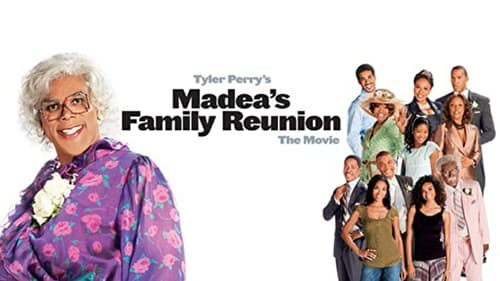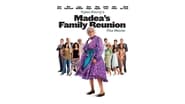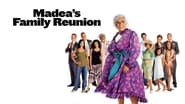shawnw007
I initially saw this film in my 20's, and I remember liking the slapstick scenes with Madea and absorbing the "abusive female" storyline with interest. However, now, ten years later, I realize that there are many episodes of inconsistency in the plot direction, and most of the characters are pretty static. That being said, the film is still wholly entertaining, though I understand the main criticism that it "doesn't know what it wants to be". Is it a drama? Drama-comedy? Indie? Or is it simply existing on it's own, as a Christian-themed, laughable variation of an African-American "Peyton Place"? I guess it's up to the viewer to decide. But let's take a look at some of the characters...First there's Madea...the matriarch and pistol-packing grandma, spewing laughable one-liners, slaps, kicks, and endless words of wisdom. Truth be told, despite her comedy, I'm not sure how essential Madea really is to the multitude of story lines in this film, other than to appear in random intervals, inserting comical dialogue here and there in an effort to prevent the film from crashing in on it's own seriousness.Then there's Madea's brother Joe, who serves no utter purpose here except as a horny, ornery comical sidekick who simply presents himself as someone who works on Madea's nerves. The "sleazy old man" thing was funny at times, but in other instances, Joe's routine got old (no pun intended).Next you have Lisa...a whimpering, spoiled protagonist destined to marry the rich man next door. There was nothing about the character that was appealing...nor did Rochelle Aytes' acting skills impress me. Other than her perpetual watery eyes and shaky gasps for air whenever her abusive fiancé rough-handled her, they didn't do enough for this character to help win over my sympathy. In fact, her posture as a victim became downright irritating. Then there's Vanessa, the older, stronger and emotionally-damaged sister, who comes across initially as a hard bitch...but we, as viewers, are inevitably forced to forgive her as her unfortunate past is reveal through the plot line. Though I initially disliked Vanessa (I perpetually get tired of our black women routinely being portrayed as "hard" or having an attitude, simply because of life's struggles), she was the only person who seemed multi-faceted, as if the writers seemed more vested in making her story a priority in the many subplots that take place here.Victoria, portrayed by the lovely Lynn Whitfield, was a ridiculous cliché in every sense of the word. I didn't find her cruelty and conspicuous favoritism among her daughters credible (at one point, she even openly admits to "loving one daughter more than the other") and it seemed as if she was written verbatim with Disney's wicked Stepmother in mind. In a deleted scene that I was privy to, Victoria even confides in her spouse-slapping son-in-law to possibly beat on her daughter "just a little bit" in order to keep her in line, but not necessarily turn her off. Yeah, right. As for Moms of the Year, this one takes the pits. I can see why this over-the-top scene was subsequently removed.Finally, there's Frankie, Vanessa's picture-perfect boyfriend. It's hard not to denounce him as a cliché, either. I mean, the man has it all: Looks, body, nice apartment, nice car (in one split second scene, we also see he drives a BMW), Christianity, and he's the existential father. Oh yes, and early on, he reminds us that he's not interested in sex at all...just the ability to help "restore". I find it wonderful that Tyler Perry has made an effort to portray some of our black men in an extraordinarily positive light...but in my book, Frankie was just too perfect. I mean, not only can he shoot hoops, but the man never curses, looks good in blue jeans, buys ice cream for children, and is ready to provide hugs on-demand. Really? Yet, Vanessa wouldn't give this man the time of day except for cold eyes and angry sighs? For the sake of the plot, I get it. But there comes a time when writers appear downright foolish.Either way, despite it's flaws, the film is entertaining enough to enjoy. As for ratings, I'd say it ranks Number 2 in the "I'll-go-ahead-and-watch- this-since-nothing-else-is-on-and-I'm-too-lazy-to-get-up-and-change- the- channel" awards.
Mitzi Taylor
People that watch these movies and find them funny and/or amusing are seriously lacking either a: intelligence, b: something else worthwhile to do with their time, c: a smart sense of humor, or d: all of the above. "D" is the most obvious answer to that rhetorical question. These movies are at their very best dumb and idiotic. A friend of mine (whom I had previously thought had good sense), extolled the virtues of all of the Madea movies tried to get me to watch a part of one of them and I made up a lie so that I could leave and spare myself more torture. These movies are horrible and an insult to all movie-watchers. Don't waste your time. It's hard to believe that there is a ridiculous number of these movies that continue to flood the theatres and that people actually spend money on these stupid films. The cinematic content of the Madea movies is only contributing to the dumbing-down of the American public. If I could give these films a negative ten stars, I would.
relichunter96
Being white, South African and predominantly Afrikaans speaking, This film tickled me absolutely pink! When i saw the trailers, I thought..."Maybe not". But while working one day, I was bored, so I rented this film. Bloody hell, Madea is a gem and Tyler Perry should be honored by someone for saying the things he said. This is a man, not afraid of saying what he believes and has the "balls" to use his faith in a film. Wake up Hollywood. Maybe this isn't a "Mainstream" film, but I will be watching Perry's films whatever they may be. And whoever reads this and disagrees, That's your choice. My choice is to watch the films that are uplifting, not degrading.
skinnyjoeymerlino
Tyler Perry's directorial movie debut was the second adaptation of his stage plays to make it to the big screen. Initially released in 2002 as a filmed version of the stage play, "Madea's Family Reunion" has its roots in the gospel musical; melodramatic morality plays with titles like "Your Arms Are Too Short To Box With God", several plot lines, lots of speechifying, and plenty of shouted comments from audiences of middle-aged evangelical Black women in brightly colored hats.The big screen adapation is a follow-up to Perry's first screenplay "Diary of a Mad Black Woman". Perry reprises his role as Madea (aka Mabel Simmons), a big-bosomed take-no-crap-but-ultimately-kind-hearted grandmother/aunt/anchor of an extended Black family in Atlanta whose house serves as a kind of refuge for troubled young female relatives. He also plays Madea's lecherous pot-smoking brother Joe and lawyer Brian who constantly gets Madea out of legal trouble brought about by her Samaritan actions. This time around Madea takes in unwed mother of two Vanessa (Lisa Arrindell Anderson) and rebellious foster child Nikki (Keke Palmer). The drama gets compounded when Vanessa's sister Lisa (Rochelle Aytes) shows up, fleeing from her abusive fiancé played by Blair Underwood. Nikki is disciplined and cared for by Madea, Vanessa ends up falling in love against her will with a perfect puppydog-eyed deep-voiced selfless man named Frankie (Boris Kojoe), and Lisa struggles to leave her fiancé against the will of her mother played by Lynn Whitfield.Perry's first attempt at movie direction is pretty straightforward and fairly competent. There are bright spots. Lynn Whitfield is excellent as the cruel mother, the scenes with Madea are funny, and Underwood is good in what must be his third go-around as the guy who doesn't get the girl. The poetry reading in the jazz cafe is really atmospheric. and the poetry read by Maya Angelou is very uplifting.Where "Reunion" falters is in the clichés. When Underwood slaps Rochelle Aytes the audience can actually count from five to one the split second it happens. Some of the romantic dialogue spoken by Kojoe is cringeworthy. Comedy bits with Madea move jarringly to over-the-top melodrama involving battered women, child abuse, and incest. Tyler Perry plays Joe in a painfully unfunny flatulence humor monologue that apparently attempts to mimic the family dinner scene played by Eddie Murphy in "The Nutty Professor". The old men leering at the young girls at the family reunion(!) is disturbing. Cicely Tyson's impromptu sermon about the decline of morals in the Black community in the middle of a barbecue(?) may work on stage to an audience that is expecting to be preached at, but on the big screen in a multiplex it's a bit much. The set where the final wedding scene takes place features a church draped in blinding white lace and curtains with real human beings dressed like angels suspended from the ceiling; in such bad taste it's ALMOST funny, but not.None of this matters, of course, to the God-fearing over-30 Black women Tyler Perry aims his plays and movies at. They flocked to theatres to make "Madea's Family Reunion" the number one movie at the box office its opening weekend. No one else is making movies for them, and as long as Tyler Perry does he's going to continue to laugh all the way to the bank.





